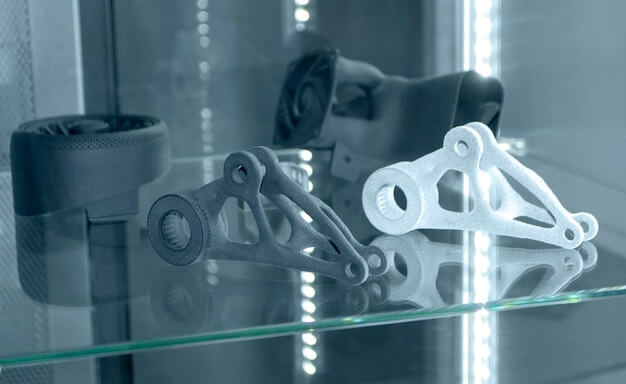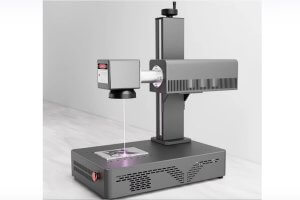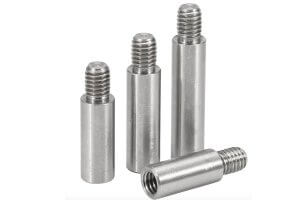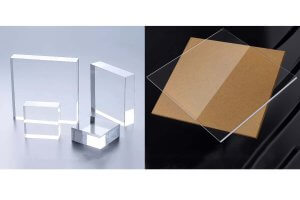Inconel vs. Monel: Understanding High-Performance Alloys
Comprehension of high-performance alloys, such as Inconel and Monel, is essential in determining their application in precision CNC machining. Inconel belongs to the family of austenitic superalloys generally known for exceptional resistance to corrosion and extreme temperatures, making them suitable for rigorous operating conditions like in aircraft engines or nuclear reactors. On the other hand, Monel alloys consist primarily of nickel (up to 67%) and copper, with small amounts of iron and manganese. Known for their impressive strength and resistance to corrosion in various media like seawater, hence finds usage mainly in marine applications.
- Inconel’s primary beauty lies in its ability to retain strength over a broad temperature range, while Monel exhibits excellent resistance to atmospheric and sea water corrosions.
- The versatility of these alloys contributes significantly towards their suitability in varied demanding applications, thereby underlining the importance of detailed knowledge of their properties.
- In-depth understanding aids engineers in material selection during design stages ensuring optimal performance of emerging technologies, whether in aerospace, oil & gas, automotive, or defense industries.
Overview of Inconel
Inconel, a family of superalloys primarily composed of nickel and chromium, showcases an impressive range of desirable characteristics. It exhibits resistance to corrosion in various harsh environments including high temperature situations, thus lending it to many demanding applications such as gas turbines and nuclear reactors. Alongside the dominating presence of Nickel (up to 72%), elements like Chromium, Iron, Molybdenum and Niobium contribute to its robust constitution along with traces of other constituents. As for its mechanical properties, they encompass high strength and toughness, tenacity at extreme temperatures, admirable surface stability, and resistance against creep deformation.
Machining process of Inconel
The machining process of this alloy requires specialized equipment due to its high work-hardening rate which leads to challenging machinability. High-speed steel or cemented carbide tooling, alongside meticulously optimized cutting parameters, are adopted to facilitate precise CNC machining of Inconel. The usual processes include milling, turning, drilling, boring, broaching, sawing and grinding though coolant application during machining serves as a key necessity owing to considerable heat generation. Despite posing difficulties, the ultimate product displays accurate dimensions, superior finish and dependable performance even in exceedingly stressful scenarios.
In-Depth Look at the Uses and Applications of Inconel
When exploring the uses and applications of Inconel, it’s important to consider:
- The unique properties and characteristics of Inconel
- The diverse industries where Inconel is commonly utilized
- The specific applications of Inconel in precision CNC machining
An Insight into Monel
Monel, a high-performance alloy, is renowned for its extreme toughness and exceptional resistance to corrosion. Characterized by a unique composition of copper (around 30%) and nickel (up to 67%), along with smaller traces of iron, manganese, carbon, and silicon, Monel exhibits excellent mechanical properties and thermal stability. Its durability, malleability, and capacity to withstand extreme temperatures make it an ideal choice in sectors such as aerospace, marine, and chemical.
The process of CNC machining for Monel involves precision-controlled operations to shape this robust metal according to specific design requirements. Given the hardness and work-hardening nature of Monel, experienced machinists often use slow speeds and heavy feed rates during the CNC milling or turning processes. They also employ modern tooling materials like carbide or ceramic to ensure smooth operation without premature tool wear. Despite being more challenging than other soft metals to machine, the end-results achieved with Monel are truly unmatched in terms of quality and performance.
The Importance and Role of Monel in Various Industries
Monel, a corrosion-resistant alloy consisting mainly of nickel and copper, plays an integral role across various industries due to its unique characteristics. In marine engineering, for instance, the strong corrosive resistance of monel makes it suitable for propeller shafts in boats, while its high thermal conductivity has seen it utilized in heat exchangers across the chemical processing industry.Associated with considerable strength and toughness, this versatile alloy is often used in the manufacturing of aircraft parts for the aerospace sectors.
- Marine Engineering: The use of monel in boat propeller shafts exhibits its notable impact resistance and anti-corrosion properties in saltwater environments.
- Chemical Processing: Leveraging on monel’s high thermal conductivity, heat exchanges are made more efficient and reliable, a key factor within critical industrial processes.
- Aerospace Sectors: Aircraft parts made from monel benefit from the combined properties of hardness coupled with elasticity at elevated temperatures.
When compared to other alternatives, choosing monel offers numerous advantages: superior corrosion resistance, better thermal conductivity, remarkable durability, and wide temperature range performance from cryogenic to over 1000° Fahrenheit. This ultimately reduces both maintenance costs and prolongs the lifespan of components applications, making monel a preferred material choice in several fields.
Comparing Inconel vs Monel: Precision CNC Machining Perspective
In comparing the production processes of both Inconel and Monel alloys from a precision CNC machining perspective, it becomes clear that distinct differences exist between them. Inconel is an austenitic nickel-chromium-based superalloy well suited to extreme environments due to its resistance to oxidation and corrosion, while Monel, a series of nickel-copper alloys, offers excellent mechanical properties at subzero temperatures.
The advantages and limitations of each alloy for precision CNC machining are worth examining in further detail:
- Inconel’s high-temperature strength makes it less machinable, while Monel ranks among the most machinable nickel alloys, displaying good weldability, thermal conductivity and dimensional stability.
- From a tool wear standpoint, Inconel can be challenging as this tough material tends to work-harden quickly, meaning frequent tool changes. On the other hand, Monel does not present such difficulties, resulting in cost savings on tools.
This timely topic highlights the importance of understanding how characteristics of different materials influence our approach when it comes to metalworking processes like precision CNC machining. Given their unique strengths and weaknesses, both Inconel and Monel remain viable options depending on specific application needs.
Concluding Thoughts
In deliberating over the course of this article, it has been essential to acknowledge the critical differences between Inconel and Monel. The decision regarding which high-performance alloy to choose for a particular project is paramount and necessitates an informed approach. Both alloys have unique characteristics in terms of strength, resistance, and temperature sustainability, yet their applications vary significantly based on these attributes. Hence, understanding these disparities prior to selection can remarkably influence the longevity and durability of your final product.
- Inconel exhibits excellent resistance against extreme temperatures and corrosive environments, rendering it highly suitable for situations involving intense heat or pressure.
- Monel, on the other hand, possesses superior resistance to acids and alkalis, solidifying its position as an ideal material amidst seafaring or chemical processing scenarios.
The cornerstone of a successful project lies not only with technical proficiency but also with an intimate knowledge of materials such as Inconel and Monel. Therefore, before embarking on any engineering venture, one should meticulously assess the advantages and drawbacks that each alloy brings forth.
Other Articles You Might Enjoy
- Inconel vs. Monel for CNC Machining: A Comprehensive Material Comparison
CNC Machining and Material Importance in Manufacturing Computer Numerical Control (CNC) machining is a manufacturing process that leverages computers to control machine tools including lathes, mills and grinders among others.…
- Inconel vs. Monel: Choosing the Superior Alloy for CNC Machining in Extreme Environments
Inconel vs. Monel: A Background and Their Relevance in CNC Machining in Extreme Environments In the sphere of advanced manufacturing practices, particularly CNC machining for extreme environments, two categories of…
- Inconel vs. Monel for CNC Machining: Which Nickel Alloy Reigns Supreme?
Introduction to Nickel Alloys in CNC Machining Computer Numerical Control (CNC) machining, a pivotal manufacturing process, uses pre-programmed software to dictate the movement of factory machinery and tools. The efficiency…









